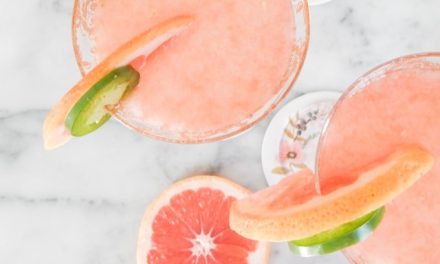Irritable bowel syndrome (IBS) can be debilitating, painful and affect your quality of life on a regular basis. Medical doctor and expert in nutritional medicine, Dr Cris Beer, shares her knowledge on how to deal with this health issue
If you suffer from diarrhoea, constipation, stomach pain, cramps or gas, this may be an indication that you have IBS.
Affecting around one in five Australians,[i] IBS can be difficult to manage, and when symptoms raise their head, it can be even more difficult to treat. While the cause of IBS is still unknown, it has been found that IBS affects twice as many women as men, and it could be genetic.
The following advice could help reduce the severity and regularity of your attacks:
Follow the FODMAP diet
Researchers at Monash University found that eliminating certain foods, such as wheat, barley, rye, dairy products, some fruits and vegetables, nuts, legumes, onion and garlic, can reduce the symptoms of around 86 per cent of IBS sufferers.[ii]
Ideally, cut these foods from your diet for up to six weeks, before slowly introducing them, one-by-one, back into your diet to observe your reaction. According to researchers, these foods are not absorbed well in the small intestine, have small molecules that draw water into the gut, and are easily fermented by intestinal bacteria, which makes them more likely to cause IBS symptoms.

Stress less
Managing your stress levels may alleviate your IBS symptoms. Research shows that there is a link between our state of mind and our bowel, due to the nerve to muscle messages in the bowel, which are similar to those in the brain.[iii] Case in point: those who get nervous may get diarrhoea.
If you’re feeling stressed, try meditation, going for a gentle walk or try yoga to help calm your nervous system.
Take a probiotic
A high-quality daily supplement may help reduce your symptoms of IBS, or help to balance the bacteria during times of inflammation.[iv]
One study[v] found that the balance of harmful gut flora may help doctors understand IBS and why and when it occurs. The study suggested that by rebalancing good and bad bacteria, with the aid of probiotics, could help to manage symptoms.
Ideally, take one probiotic every day, around two to three hours after eating. Include probiotic-rich foods in your diet too, such as fermented foods, and try to gradually increase your fibre intake, with wholegrains, oats, linseeds and fruit and vegetables.[vi]
Speak to your healthcare practitioner if symptoms persist. Always read the label. Use only as directed. Supplements may only be of assistance if dietary intake is inadequate.
For more information, visit www.blackmores.com.au
ABOUT DR CRIS BEER
Dr Cris is an integrative medical doctor, author, corporate speaker, and media doctor. As an expert in integrative medicine Dr Cris specialises not just in treatment of illnesses, but in the attaining of optimum health. She has particular interests in preventative health, lifestyle medicine, hormone health, weight loss, fatigue and sleep problems, digestive issues, as well as women’s health.
Check her website out for some amazing programs and follow her here https://www.instagram.com/_drcris/
[i] https://www.healthdirect.gov.au/irritable-bowel-syndrome-ibs
[ii] [ii] https://www.ncbi.nlm.nih.gov/pmc/articles/PMC4918736/
[iii] https://www.ncbi.nlm.nih.gov/pmc/articles/PMC4968122/
[iv] https://www.ncbi.nlm.nih.gov/pmc/articles/PMC2886445/
[v] http://onlinelibrary.wiley.com/doi/10.1111/jgh.12322/abstract
[vi] https://www.bda.uk.com/foodfacts/IBSfoodfacts.pdf





